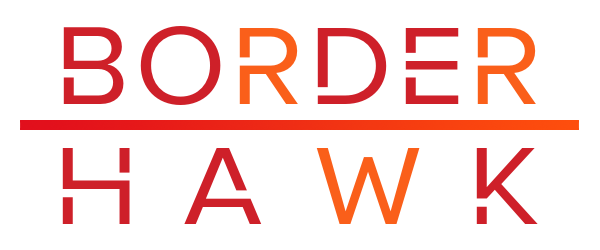CBP Agents No Longer Protect Our Borders - But They Better Protect Feelings of LGBTQIA+ Illegal Aliens!

Biden’s border officials have allowed millions of illegal aliens into the country, but they’re just following orders.
What they really need to concentrate on is using correct pronouns!
Employees of Customs and Border Protection (CBP), the agency within the Department of Homeland Security that oversees Border Patrol, have received an important memo entitled, "Guide to Facilitating Effective Communication with Individuals who identify as LGBTQI+."
This document was brought to the attention of the public by the Heritage Foundation, who released a portion of it through its Oversight Project.
🚨Biden Directs Border Patrol to use Illegal Aliens' Preferred Pronouns
— Oversight Project (@OversightPR) November 17, 2023
We just obtained @CBP documents directing personnel to only use woke language when encountering individuals invading the United States pic.twitter.com/HwhiYJmqmm
The Heritage Foundation does not reveal the entire document, and I think they should have provided more authenticating information, including the date. Maybe they will in the future.
But what’s available fits right in with the sorts of crazy things our federal government promotes.
After all, back in March of 2022, the Department of Homeland Security issued a press release entitled, “DHS Announces New Measures to Better Serve Transgender, Non-Binary, and Gender Non-Conforming Travelers."
Getting back to the document released by Heritage, here’s what it says in the introduction: “This job aid provides guidance to all CBP employees who interact with members of the public to help facilitate effective communication with the diverse public we serve, including individuals who identify as lesbian, gay, bisexual, transgender, queer or questioning, intersex, non-binary, and gender nonconforming (LGBTQI+).”
Maybe you had the old-fashioned (and probably racist and homophobic) idea that the job of CBP was to protect the borders of the United States.
How quaint that now seems!
Back to the guide: “This guidance includes using gender-neutral language and an individual’s self-identified pronouns and name (if known).”
“IF KNOWN”? Shouldn’t an agent know or quickly determine a person’s name, nationality and migratory status?
Nowadays, apparently, the agent’s objective is to not “misgender” anybody. Priorities!
Oh, but don’t forget this “note” in the introduction: “The terms and definitions in this job aid are not universal. Some LGBTQI+ individuals may define these terms differently and the meanings of the terms may change over time.”
Don’t suppose you have this all figured out. It may change next week and if you are still employing today’s terminology, you may be spewing hate speech.
Later in the document, the CBP agents are given some “DON’TS."
For example, “DO NOT use “he, him, she, her” pronouns until you have more information about, or provided by, the individual.”
However, agents should remember that “LGBTQI+ status should be kept confidential.”
Say an agent finally determines what a person claims to be. Can the agent tell anybody? How about the next agent who deals with that person?
So how do you figure this stuff out?
The guide tells agents, “You should not ask, ‘What are you?’"
Apparently CBP agents have so much time on their hands they don’t have to worry about wasting it.
More wisdom from the guide: “Avoid asking ‘What is your sex?’ unless operationally necessary.”
So what if a temporarily-detained illegal alien is sick or pregnant? Would that count as being “operationally necessary”?
The guide does provide a manner in which an agent can possibly inquire as to one’s preferred pronoun, but only if they’ve been conversing for a while: “If a longer dialogue is occurring, it may be appropriate to ask the individual their [sic] pronoun.”
But how does the agent ask?
“For example, state ‘I would like to be respectful – what name and pronoun would you like me to use when addressing you?’”
However: “Consider the tone of your questions and wording.”
Here’s how the agent can properly inquire: “For example, you may ask, ‘Can you please confirm your pronouns or gender identity?’”
What if – gasp – someone is misgendered?
“If an incorrect pronoun is used and corrected by the individual, acknowledge the oversight and use the correct pronoun. For example, ‘My apologies. Thank you for the clarification.’"
Do CBP agents have time for all this?
Don’t worry, they just might.
After all, protecting the border is no longer their responsibility!
You can find more of Allan Wall's work at his website.
Please donate to support our work
Visit BorderHawk.news




